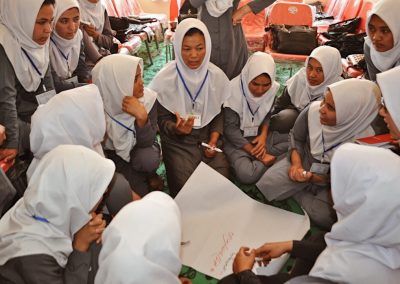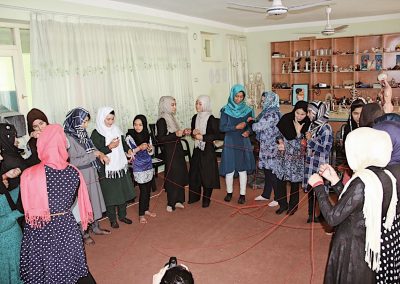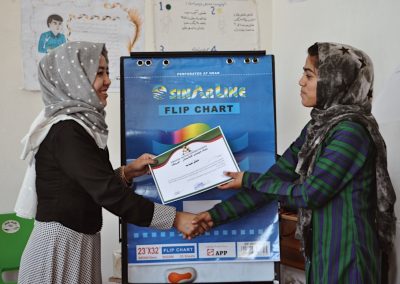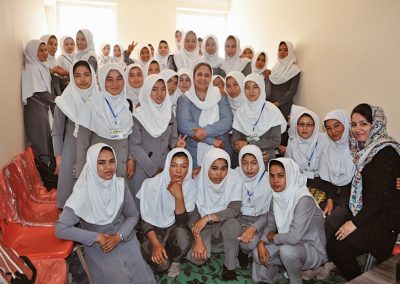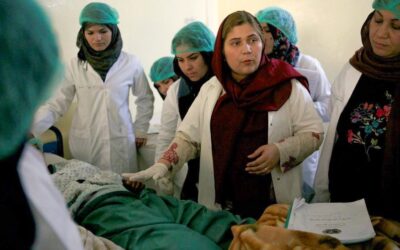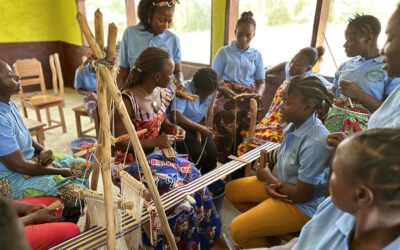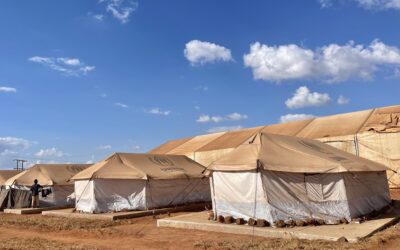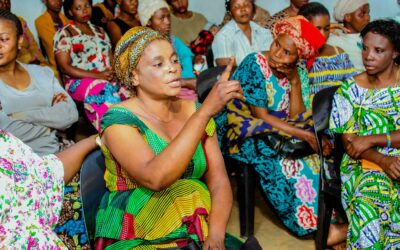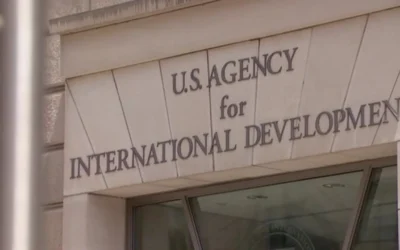This org’s unique approach to empowering girls in Afghanistan
Growing up in a country where women and girls are often treated as inferior, Samaana knows what it’s like to feel like a second-class citizen. The 10th grader, who attends a high school in Afghanistan, has been called weak, servant, sheep, and unintelligent. And even if Samaana knew how to stand up for herself, doing so could be risky.
Samaana’s struggle for liberation and opportunity mirror’s the struggle of many girls throughout Afghanistan.
The UN Population Fund estimates that nearly 57% of girls in Afghanistan are married before the country’s legal age of 16. Certain cultural groups still practice the customs of early marriage for reasons such as bride prices, bride exchange, child engagement, and “honor” situations. These customs are further complicated by issues of poverty, lack of women’s rights, and political conflict that has plagued Afghanistan for decades.
The issue of early marriage in particular can have major consequences for girls–consequences that can impact the rest of their lives and the lives of their future families.
The dangers of early marriage
According to the WHO, complications of pregnancy and childbirth are the leading cause of death among young women ages 15-19. Delaying pregnancy has shown to improve the health of adolescent girls and their families.
Early marriage can also contribute to girls dropping out of school, especially prior to finishing secondary school. In Afghanistan, girls’ education is often stigmatized, and girls’ schools can even be targeted by violent extremists. The Central Statistics Organization of Afghanistan wrote that in 2014 just 39.5% of children enrolled in formal education are female, and just 21% of students attending Afghan Universities are female.
These statistics are tragic considering that with each year of secondary school a girl attends, it’s estimated that her future earning power increases by 25%. Finishing school not only improves her economic capacity, but her ability to make healthy decisions for herself and her family. It’s clear that girls’ empowerment is important for alleviating poverty as a whole.
Sahar’s unique approach
One thing that is inspiring to us at ODW is that despite the many barriers girls in Afghanistan face, they continue to seek better access to education for themselves.
Our partner in Afghanistan, Sahar, has taken note of this and works to empower girls through education. Their projects aim to build the capacity of girls’ schools, enable female teachers to get certified, create technology literacy programs, and tackle the complex issue of early marriage.
Sahar’s past programs have found that girls tend to drop out around the age of 12 to 13 due to early marriage and their husbands or parents encouraging them to drop out. So in their new phase of programing they are tackling these drop out rates head on through early marriage prevention education.
Their unique strategy combines raising awareness about the problems of early marriage and changing the attitudes and perceptions surrounding the custom. They target not just girls, but their families, local elders, school principals, and religious leaders. The training also teaches girls about their rights and the laws in place to protect them. In addition, girls are encouraged to communicate with their parents about the issue, go through leadership and self-esteem training to help them stand up for themselves, and are connected with female role models.
The risks of working in a conflict zone
In 2016 a suicide bomber attacked a consulate near one of the locations of Sahar’s programs. Thankfully none of the girls in the program were hurt, but significant damage was done to their building. This was a reminder of the continuing risk of working in a conflict zone, and with the sensitive nature of Sahar’s projects around female empowerment, they must pay special attention to building relationships in the community.
In lou of these risks, the lynchpin of Sahar’s work is to collaborate with the Ministry of Education, local leaders, community groups, and specifically male stakeholders. The topic of early marriage is very sensitive and controversial in Afghanistan. This is why getting the support of fathers, brothers, male teachers, and religious leaders throughout the process is crucial to avoiding risk and building program sustainability.
This is their movement
As an industry, we often forget to give girls credit for the role they play in their own empowerment. We may be offering the education and the avenues to achieve it, but girls are the ones doing the real work. And this work is not just academic. It requires girls to become activists in their own homes and communities as they fight for their right to be and live how they choose.
In a place like Afghanistan, this work is especially challenging. But we’re continually impressed by how our partner Sahar is coming alongside girls to provide them with better opportunities.
Samaana, mentioned earlier, is one of the many encouraging examples of how Sahar’s work is empowering girls to take their future into their own hands.
“By attending this training I learned that I have equal rights as men and boys in our society. From now on, I will defend the rights of those women who are violated. I am one’s daughter, one’s sister, one’s wife, and one’s mother. I will not take those serious who put us down, and call us names. I will not be silent anymore. I now know that I have the right to freedom of speech, I have my individual right. I will fight until I achieve my goals.”
You are invited to contribute to education and early marriage prevention here.
Melissa Pack is the Communications Director at One Day’s Wages. She lives in Seattle with her husband and papillon.
Share this story: [shareaholic app=”share_buttons” id=”26108403″]
More stories of impact
One Day’s Wages Named Together Women Rise 2026 Featured Grantee for Maternal Health Work in Afghanistan
One Day’s Wages (ODW) is honored to announce its selection as the 2026 Featured Grantee of Together Women Rise, a powerful global community of women and allies committed to advancing gender equality. This prestigious award includes a $50,000 grant over two years...
Women at Work: Toward Inclusion in the Global Workforce
Can you remember the last time you couldn’t make it to work? Maybe your nanny canceled, and you were left without childcare. Or maybe your car battery died, and you didn’t have a safe way to get to the office. These are the kinds of barriers that women around the...
Standing in Solidarity When the World Turns Away
We cannot fix every broken system. But we can choose to stand in solidarity with those who cross our path. This choice, this posture of care and action, is what fuels us at One Day’s Wages. And it’s why we need each other, now more than ever. Recently, our Global...
Turning Challenges into Opportunities: Masoka’s Journey of Empowerment
Masoka’s hands are stained with the rich soil of the land she now calls home. A 37-year-old mother of four, she arrived at Dzaleka Refugee Camp in Malawi after fleeing the conflict in her home country, the Democratic Republic of the Congo. The future felt uncertain,...
What Was USAID, and What Now?
USAID has made news headlines constantly over the last few months. You may find yourself wondering: what is USAID, and is One Day’s Wages affected by its dismantling? As a global development organization, we at ODW care deeply about the people who depend on foreign...
Growing Love, One Drop at a Time: How One Woman Turned Her Birthday into a Gift of Clean Water
When Sara, a graphic designer and mother from Oregon, started thinking about how to celebrate her birthday, she decided to do something different—something meaningful. With a belief that “we are all connected… with the power to affect change by how we live our own...
LEARN
Leadership
Transparency
Read the Latest
Contact Us
COLLABORATE
Faith Groups
Schools
Businesses
Get Involved
One Day’s Wages exists to alleviate extreme poverty by investing in, amplifying, and coming alongside locally led organizations in underserved communities.
©2025 One Day's Wages is a registered 501(c)(3) organization | Tax ID #26-2566653 | Privacy policy | Terms of use
P.O. BOX 17575 Seattle, WA 98127 | Contact us

